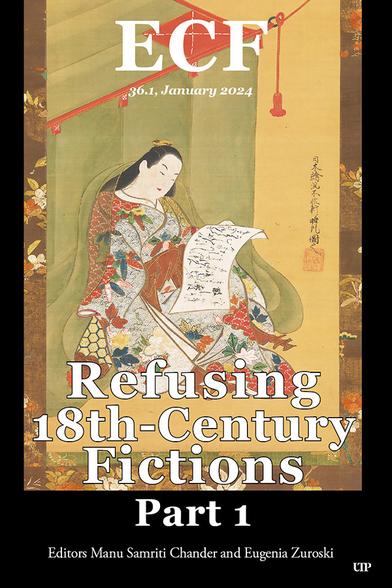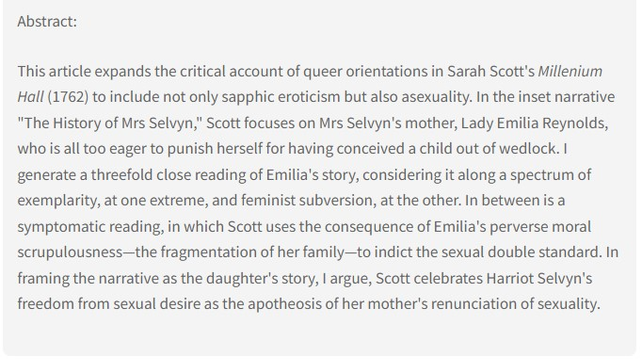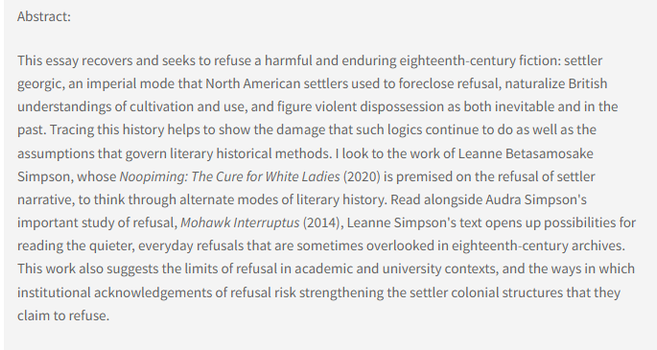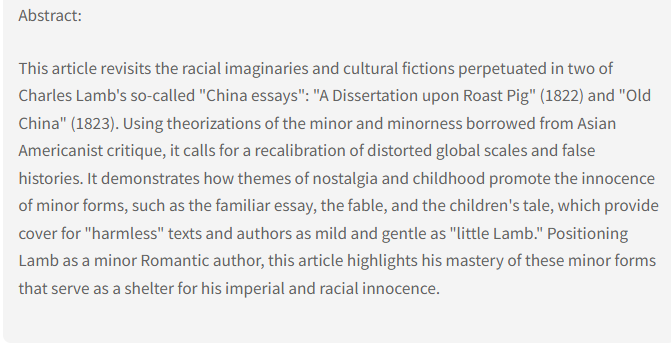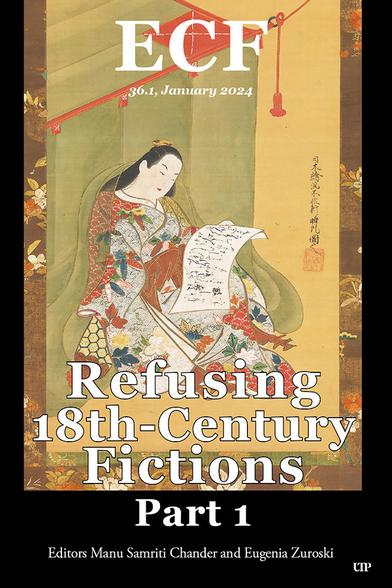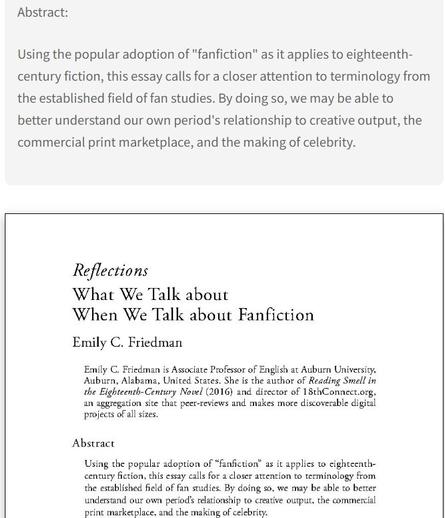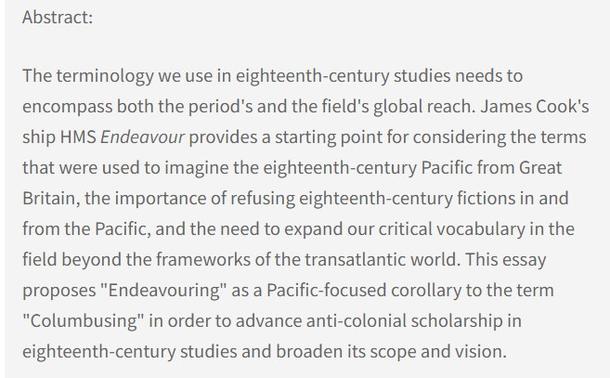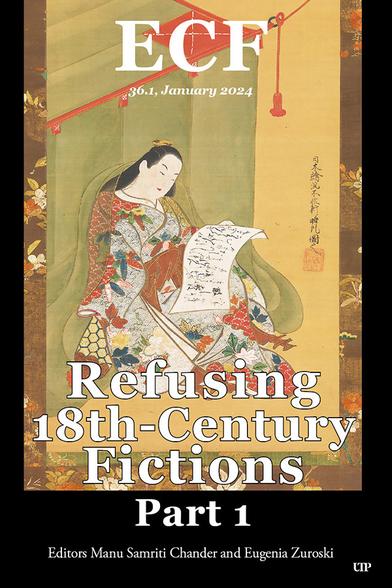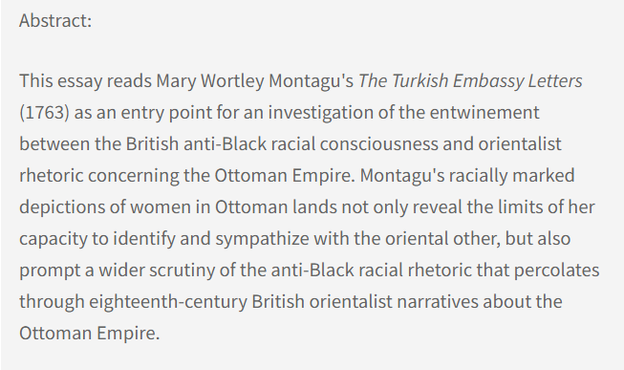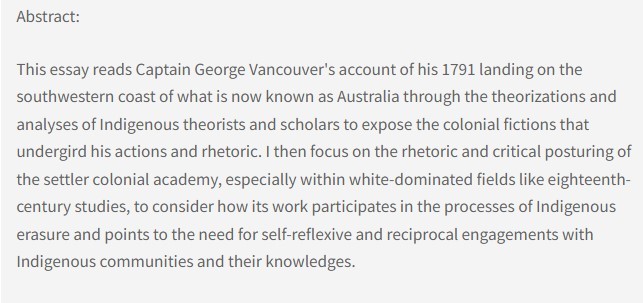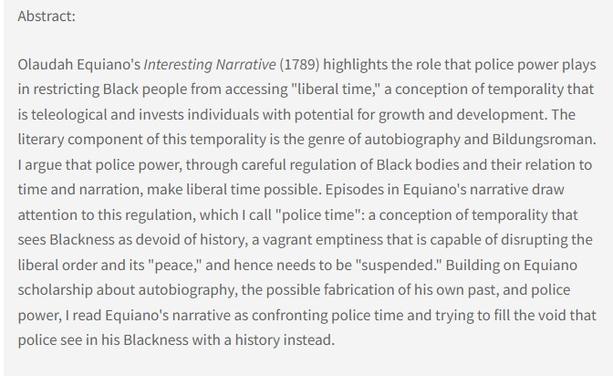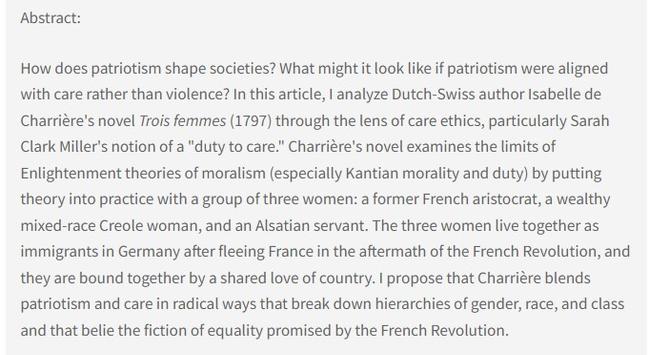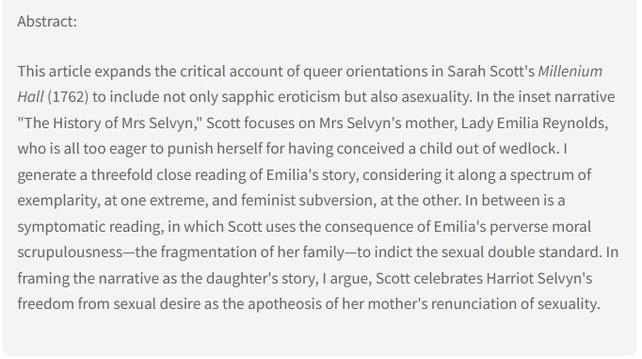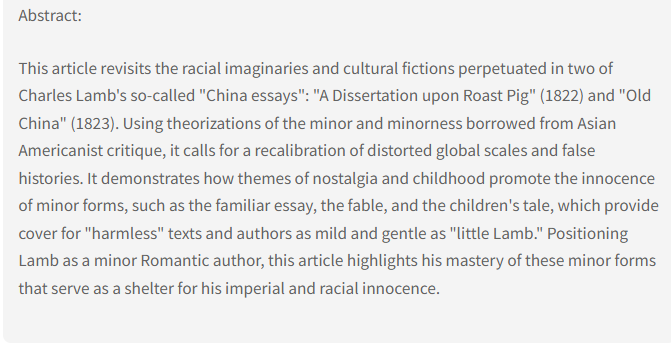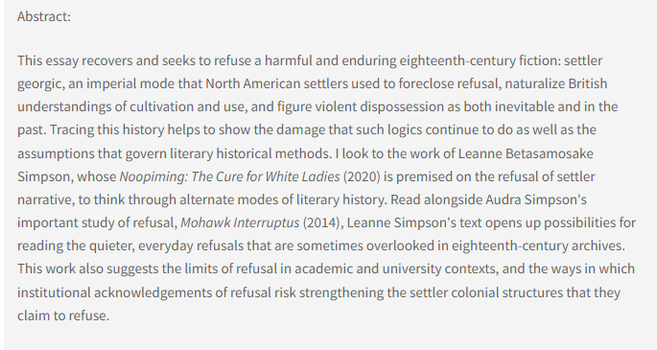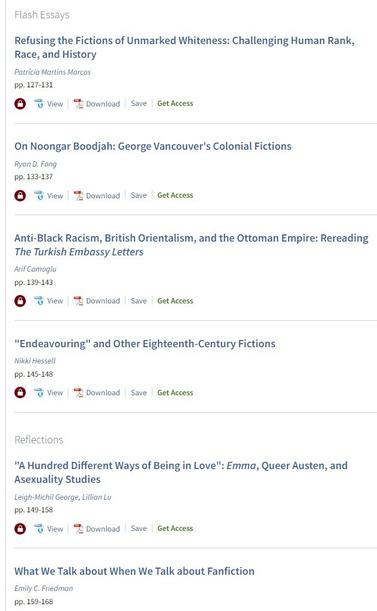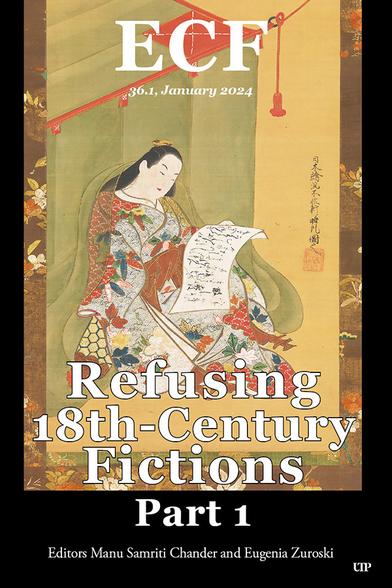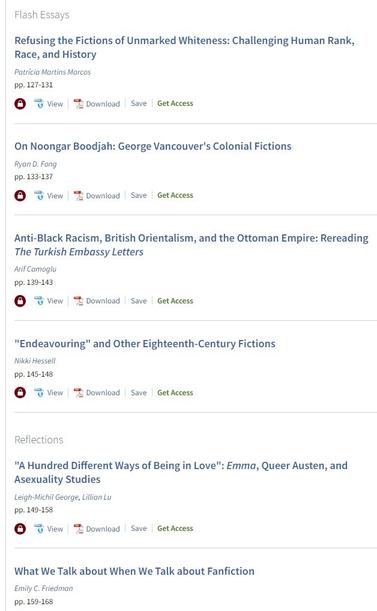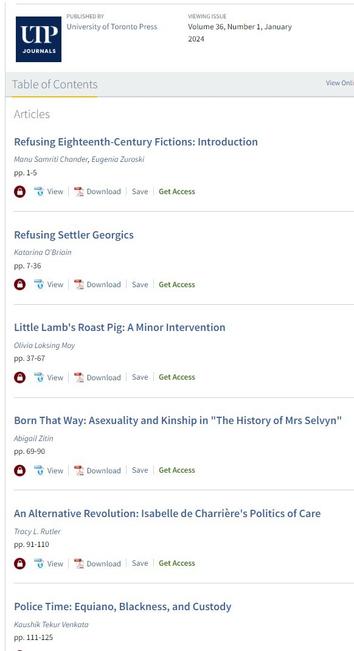In a new UTP blog post, ECF author Tracy Rutler, Penn State, reflects on the impact of the COVID-19 crisis, drawing parallels to the societal inequalities highlighted in Isabelle de Charrière’s novel.
http://bit.ly/ECFBlog
#ReadECF #18thCentury #AcWri #WhatWeDo #C18th #18thC
@utpjournals @ASECS
American Society for Eighteenth Century Studies.
Oh, before @ASECS@chirp.social vanishes in the next few days: If anyone cares, you can find archived posts at this archive.org link. I don't think @asecs@a.gup.pe will produce a web archive, which is kind of too bad. That is assuming there are enough ASECS people still on Mastodon for people to post about it...are there? There are 76 followers of the current ASECS group, but I don't know how many actually log in to Mastodon,
https://web.archive.org/web/20240223183951/https://chirp.social/@ASECS/shared?page=4¤t
@ASECS@chirp.social I just received an email that chirp.social, which hosts the ASECS (American Society for Eighteenth-Century Studies) group, is shutting down. I am creating a replacement group at @asecs@a.gup.pe . If you follow @asecs@a.gup.pe, it should provide the same functionality: When you tag the group, everyone in the group should see the post
@asecs@a.gup.pe #ASECS #ASECS2024 #ASECS24 #C18 #C18th #18thC #18thCentury #EighteenthCentury #C18studies #18thCenturyStudies
Another most excellent article in the new ECF special issue:
Born That Way: Asexuality and Kinship in "The History of Mrs Selvyn,"
by Abigail Zitin
https://muse.jhu.edu/pub/50/article/917769
ECF 36.1, U of Toronto Press, January 2024, pp. 69-90
Thanks for reading ECF journal at Project MUSE!
#18thCentury #C18th #18thC @ASECS
New special issue article:
"Refusing Settler Georgics," by Katarina O'Briain
Eighteenth-Century Fiction, University of Toronto Press
Volume 36, Number 1, January 2024, pp. 7-36
https://muse.jhu.edu/article/917767
#18thCentury #WhatWeDo #AcWri @ASECS
From the new special issue:
"Little Lamb's Roast Pig: A Minor Intervention,"
by Olivia Loksing Moy
Eighteenth-Century Fiction 36.1, January 2024, pp. 37-67
https://muse.jhu.edu/pub/50/article/917768
#18thCentury #C18th @ASECS
What we do!
Thanks for reading ECF journal at Project MUSE!
Were you at the CSECS 2023 meeting last fall?
When you expand your CSECS paper to article length, please submit your work to ECF for consideration.
Guidelines: https://ecf.humanities.mcmaster.ca/guidelines/
Submit: https://mc04.manuscriptcentral.com/ecf
Questions? ecf@mcmaster.ca
#18thCentury #CSECS2023 #AcWri #C18th #18thC @ASECS
Another amazing essay in the new ECF special issue, "Refusing 18th-Century Fictions, Part 1":
"What We Talk about When We Talk about Fanfiction,"
by Emily C. Friedman
U of Toronto Press, ECF 36.1, January 2024, pp. 159-168
https://muse.jhu.edu/pub/50/article/917777
#18thCentury #18thC #C18th @ASECS
Thanks for reading ECF at Project MUSE!
More from the newest ECF journal special issue:
"Endeavouring" and Other Eighteenth-Century Fictions,
By Nikki Hessell
https://muse.jhu.edu/pub/50/article/917775
ECF Volume 36, Number 1, January 2024, pp. 145-48.
ECF is published by the University of Toronto Press.
#18thCentury #C18th #18thC @ASECS
Thanks for reading ECF at Project MUSE!
Thinking of submitting a manuscript for consideration?
Find helpful info: http://ecf.humanities.mcmaster.ca/guidelines
Feel free to email with any questions: ecf@mcmaster.ca
The ECF Editor welcomes submissions on eighteenth-century literary studies topics at any point during the year.
Stay tuned for the next call for papers for a special issue.
#18thCentury #WhatWeDo #AcWri
Submit: https://mc04.manuscriptcentral.com
ReadECF: https://muse.jhu.edu/journal/324
#C18th #18thC @ASECS
More from the new special issue of ECF "Refusing 18th-Century Fictions":
"Anti-Black Racism, British Orientalism, and the Ottoman Empire: Rereading The Turkish Embassy Letters," by Arif Camoglu
https://muse.jhu.edu/pub/50/article/917774
Eighteenth-Century Fiction, University of Toronto Press
Volume 36, Number 1, January 2024, pp. 139-43
#18thCentury @ASECS #C18th #18thC
Another flash essay from the amazing, new ECF special issue:
"On Noongar Boodjah: George Vancouver's Colonial Fictions," by Ryan D. Fong
https://muse.jhu.edu/pub/50/article/917773
ECF journal, U of Toronto Press
36.1, January 2024, pp. 133-137
#18thCentury #18thC @ASECS
Thanks for reading ECF at Project MUSE! #C18th 😃
Some great flash essays in this new ECF special issue:
"Refusing the Fictions of Unmarked Whiteness: Challenging Human Rank, Race, and History," by Patrícia Martins Marcos
https://muse.jhu.edu/pub/50/article/917772
ECF 36.1, Jan. 2024, pp. 127-131
#18thCentury #C18th #18thC @ASECS
Read ECF at Project MUSE, please.
Have a good weekend, friends!
Another most excellent essay in the new ECF special issue,
"Refusing 18th-Century Fictions, Part 1":
"Police Time: Equiano, Blackness, and Custody,"
by Kaushik Tekur Venkata
https://muse.jhu.edu/pub/50/article/917771
Eighteenth-Century Fiction, U of Toronto Press
36.1, January 2024, pp. 111-125
#18thCentury #C18th #18thC @ASECS
Thanks for reading ECF journal at Project MUSE!
And still more from the new ECF special issue:
"An Alternative Revolution: Isabelle de Charrière's Politics of Care,"
by Tracy L. Rutler
https://muse.jhu.edu/pub/50/article/917770
Eighteenth-Century Fiction, U of Toronto Press
Volume 36, Number 1, January 2024, pp. 91-110
Another article in the new ECF special issue:
Born That Way: Asexuality and Kinship in "The History of Mrs Selvyn,"
by Abigail Zitin
https://muse.jhu.edu/pub/50/article/917769
Eighteenth-Century Fiction, University of Toronto Press,
Volume 36, Number 1, January 2024, pp. 69-90
#18thCentury #C18th #18thC @ASECS
All week I'll be posting articles from the new ECF special issue:
this afternoon's is --
"Little Lamb's Roast Pig: A Minor Intervention," by Olivia Loksing Moy
Eighteenth-Century Fiction, University of Toronto Press
Volume 36, Number 1, January 2024, pp. 37-67
New special issue article:
"Refusing Settler Georgics," by Katarina O'Briain
Eighteenth-Century Fiction, University of Toronto Press
Volume 36, Number 1, January 2024, pp. 7-36
https://muse.jhu.edu/article/917767
#18thCentury #C18th #18thC @ASECS
The new special issue "Refusing 18th-Century Fictions, Part 1" -- edited by Manu Chander @profchander and Gena Zuroski @zugenia -- is now available to read at Project MUSE:
https://muse.jhu.edu/issue/51979
It's a fabulous lineup. More fantastic authors to come in Part 2 in April. Stay tuned! #18thCentury #C18th #18thC @ASECS
Great news for a Thursday!
The new special issue "Refusing 18th-Century Fictions, Part 1" is now available to read at Project MUSE:
https://muse.jhu.edu/issue/51979
It's a fabulous lineup, and stay tuned for more fantastic authors to come in Part 2 in April.
#18thCentury #C18th #18thC @ASECS
